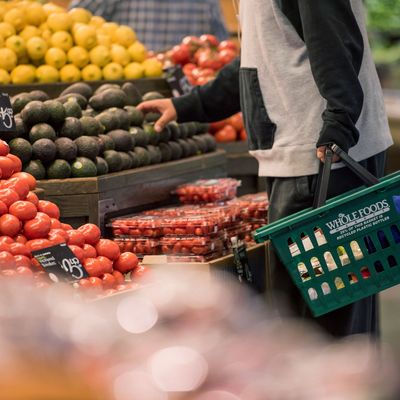
Nutrition researchers will often talk about a “health halo” — a product that’s not so great for you enjoying a nutritious reputation it doesn’t deserve. Salad is one example: Dump a bunch of cheese and croutons on top of a few leaves, and yes, it’s technically a salad (and probably delicious), but it’s not the healthy meal that the label implies.
And as a forthcoming study in the Journal of Consumer Research illustrates, the same thing can happen with price. More expensive foods benefit from the health halo of a higher cost, while affordable items are seen as junky — even if neither is true.
In one experiment, the authors asked their volunteers to guess how much a snack called “granola bites” would cost. Half the subjects had been told that the bites were healthy, while the other half were told they were roughly halfway between health food and junk; members of the former group also assumed it would be more expensive. In another experiment, participants who munched on what they believed to be an expensive cracker also rated it as healthier than those who thought they’d been given a cheaper snack.
It’s true that the healthy option is often the costlier one: In 2013, a team of Harvard researchers found that a diet high in fruits, vegetables, and fish costs an average of $1.50 more per day than one heavier on meats and highly processed foods. But when you’re talking about individual items at the grocery store, that rule isn’t a universal one. And assuming otherwise has a dual effect, both parts of which work against consumers: One, food companies can mark up the price of the healthy products they’re selling; and two, people are less inclined to believe a product’s health claims unless they’re shelling out more for it. More affordable foods with the same nutritional benefits, then, are left on the shelves.
It also means that shoppers on the hunt for healthier options may rely on the price sticker to do the work for them. In another experiment, volunteers were given information about a new protein bar billed as “the healthiest protein bar on the planet.” Some were told that the bar would cost 99 cents, just half the price of the average protein bar; others were told it would cost $4, or twice the price. The authors then asked them to share their opinions of the bar, with the opportunity to read other people’s online reviews before offering their own — an option that people took greater advantage of when they believed the bar was cheap.
“People just couldn’t believe that the ‘healthiest protein bar on the planet’ would cost less than the average bar,” study co-author Rebecca Reczek, a marketing professor at the Ohio State University, said in a statement. “They were much more willing to accept that the healthy bar would cost twice as much as average” — an assumption that can be detrimental to both your body and your bank account.




